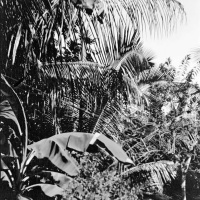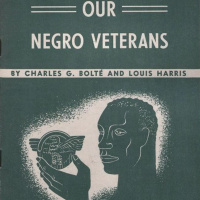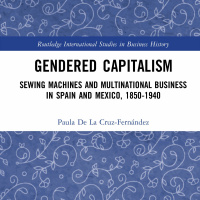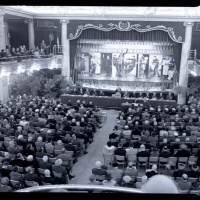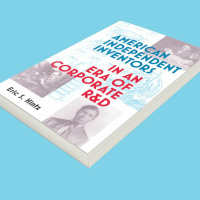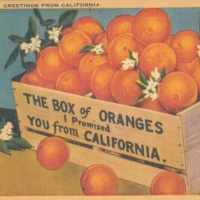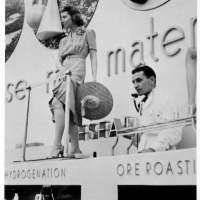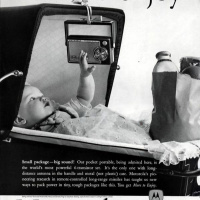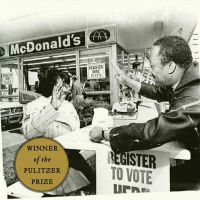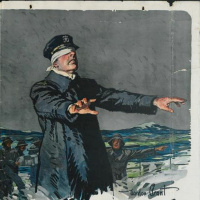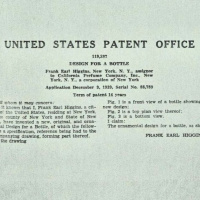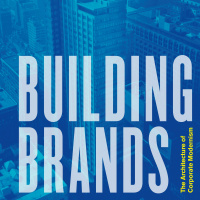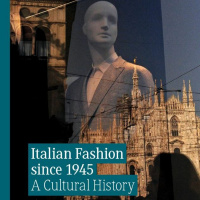Stories From The Stacks
- Author: Vários
- Narrator: Vários
- Publisher: Podcast
- Duration: 79:48:23
- More information
Informações:
Synopsis
Podcast by Hagley Museum and Library
Episodes
-
The Not So Inexhaustible Sea: Fisheries Science & Management with Aaron Van Neste
21/02/2022 Duration: 28minHow many fish can people catch before we exhaust the supply? Fisheries managers have deployed the language and techniques of science since the mid-nineteenth century in an intergenerational attempt to find out. Their efforts were part of a longer debate over whether the seas are an inexhaustible resource for human exploitation, or whether there are practical limits to the sustainability of marine resource extraction. Scientists developed models of fish reproduction, and theories of ecological stability, that inform the approach taken by regulators toward fishery management. Yet, as scientific understanding has evolved over two centuries, public regulation and popular understanding of fishing industries has lagged behind. Historian of science Aaron Van Neste suggests that the application of scientific understandings to fisheries management has had unintended consequences for marine ecology, and for the economic sustainability of the industry. The scientific perspective on fisheries has changed from a beginnin
-
Oil Palm: A Global History with Jonathan Robins
07/02/2022 Duration: 39minOil palms are ubiquitous - grown in nearly every tropical country, they supply the world with more edible fat than any other plant and play a role in scores of packaged products, from lipstick and soap to margarine and cookies. And as Jonathan E. Robins shows, sweeping social transformations carried the plant around the planet. First brought to the global stage in the holds of slave ships, palm oil became a quintessential commodity in the Industrial Revolution. Imperialists hungry for cheap fat subjugated Africa’s oil palm landscapes and the people who worked them. In the twentieth century, the World Bank promulgated oil palm agriculture as a panacea to rural development in Southeast Asia and across the tropics. As plantation companies tore into rainforests, evicting farmers in the name of progress, the oil palm continued its rise to dominance, sparking new controversies over trade, land and labor rights, human health, and the environment. By telling the story of the oil palm across multiple centuries and co
-
Home & Hell: Sundown Towns & the Great Migration in Appalachia with Matthew O’Neal
24/01/2022 Duration: 24minMillions of black Americans left the Deep South fleeing violence and seeking opportunity during the Great Migration, one of the most dramatic demographic shifts in twentieth-century American history. Some communities welcomed these newcomers with open arms, going so far as to actively recruit them as industrial labor, while others attempted to shut their doors, to maintain their homogeneity through the threat of violence against black people. These different reactions could take place in towns adjacent to one another, with locally-specific causes shaping the divergence. Social historian Matthew O’Neal, PhD candidate at the University of Georgia, uncovers the story of two eastern-Kentucky towns that reacted differently to the Great Migration: Lynch, a U.S. Steel company town which became a relatively diverse, welcoming community, and Corbin, a railroad hub that became an infamous “sundown town,” or place unsafe for black people to live in or visit. The economic base of wither town, and the resulting social o
-
Gendered Capitalism: Sewing Machines & Business in Mexico & Spain with Paula de la Cruz-Fernandez
27/12/2021 Duration: 01h56sPaula A. de la Cruz-Fernández’s book Gendered Capitalism: Sewing Machines and Multinational Business in Spain and Mexico, 1850–1940 explores how the gender-specific cultures of sewing and embroidery shaped the US Singer Sewing Machine Company’s operations. Using the cases of Spain and Mexico, Fernandez details how the cultural, everyday realm of female use of sewing machines for family or business purposes influenced corporate organization and marketing strategy. In those places local agents, both men and women, developed and expanded Singer’s selling system such that this American-based multinational company assumed a domestic guise because of its focus on the private sphere of the home. In this way Fernandez genders the corporation, especially the intersection between feminine domesticity, commerce, and corporate strategy. Paula A. de la Cruz-Fernández is the Digital Editor of the Business History Conference and Digital Heritage Manager at the University of Florida. She received her Ph D in history from
-
The Shareholder Value Revolution with Sean Delehanty
13/12/2021 Duration: 29minWhat is the purpose of an American corporation? Is it to serve as an integral organ of society, generating plural benefits for owners, workers, communities, and the general public alike? Or is it strictly to generate monetary benefit for its owners? During the twentieth century, the dominant model of the American corporation shifted from the former to the latter. This so-called shareholder value revolution had profound consequences for American political economy and society. Historian Sean Delehanty, PhD candidate at the Johns Hopkins University, uncovers the multiple dimensions of this story as it unfolded between the 1960s and 1990s. Using the U.S. Chamber of Commerce and National Association of Manufacturers collections, Delehanty traces how abstract theories created by academic economists connected with the predations of corporate raiders and the self-interested activism of portfolio managers to yield stunning changes to the American corporate landscape. This “revolution” has had profound consequences f
-
Ruman Nation: An Environmental History of American Cattle with Nicole Welk-Joerger
29/11/2021 Duration: 40minAmericans love cows. The United States possesses an entire economic sector geared for rearing, feeding, slaughtering, shipping, and eating the big-eyed ruminants. So all-encompassing is the American cattle-industrial complex that it helps determine what crops are grown on what land, what is done with the waste materials from chemical and food processing, the composition of soils, the purity of air and water, and the health effects of eating your dinner. How has the American love of cows come to shape our world so profoundly? Historian and anthropologist Nicole Welk-Joerger seeks answers in her research on cattle and sustainability in the United States. Taking a dual approach that involves ethnographic fieldwork and historical research in the archive, Dr. Welk-Joerger traces the growth of the livestock feed industry from its beginnings in the late nineteenth century, to its dominance of the economic scene in the early twenty-first century. Key to this history is the changing ideas Americans had about their ca
-
American Independent Inventors In An Era of Corporate R&D with Eric Hintz
15/11/2021 Duration: 44minDid the American independent inventor ever go extinct? In his new book, American Independent Inventors In An Era of Corporate R&D, Eric S. Hintz argues that they persisted despite the development of corporate R&D during the twentieth century. In his new book Hintz explores the relationship between independent inventors and corporate R&D departments. While corporate R&D departments did eventually supplant independent inventors in terms of annual patents per year, independent inventors never faded away. Corporate R&D labs often benefited from larger budgets, and stronger political connections than independent inventors. Still, this relationship wasn’t strictly adversarial, often times corporate labs found themselves working with independent inventors, whether by licensing their patents or bringing them on as temporary consultants. For more Hagley History Hangouts, and more information about the Center for the History of Business, Technology, & Society at the Hagley Museum & Library, visit www.hagley.org.
-
Unpeeling the Orange Empire: Citrus & Art in the Archive with Suzy Kopf
01/11/2021 Duration: 39minHow did citrus fruit come to carry its particular meaning in American consumer culture? Visual artist Suzy Kopf, instructor at the Maryland Institute College of Art, visited the Hagley Library to research citrus companies’ efforts to sell their products to Americans. What she found was a much deeper story of how changing technologies, markets, and popular culture made citrus, and its semitropical cousin avocado, into a beacon of sunshine, fun, and desirability. Supported by an exploratory grant from the Center for the History of Business, Technology, & Society, Kopf dug into a variety of collections to uncover the untold stories of American citrus in the twentieth century. From produce marketing photographs, to real estate and vacation pamphlets, to instructional booklets for citrus growers and grocery store operators, Kopf found a wealth of materials in the Hagley archives to inform and inspire her artwork in multiple media. Images referred to in this interview can be found at www.hagley.org/research/his
-
Time-Bombing the Future: Plastics In & Around Us with Rebecca Altman
18/10/2021 Duration: 28minHagley Center program officer Gregory Hargreaves interviews Dr. Rebecca Altman about her research into the intimate history of synthetic materials, industrial chemistry, & the human body. Altman, an environmental sociologist, has made extensive use of the Hagley Library’s vast collection of digitized materials available worldwide at digital.hagley.org. Cattle drinking from a creek near the Ohio River ingest PFAS and become unwitting agents for the circulation of synthetic materials through the natural world. The legacies of industrial chemistry lace together society and the environment, making synthetic materials such as plastic an ideal location to study the historical relationship that exists between social and natural forces. Altman combines research from across archives to piece together a story of chemical legacies within and all around us. For more Hagley History Hangouts, and to learn more about the Center for the History of Business, Technology, & Society, visit us online at hagley.org.
-
Ding Dong! Avon Calling! The Women & Men of Avon Products Incorporated by Katina Manko
04/10/2021 Duration: 48minThe Avon lady going door to door is a part of the popular American memory. From its founding in the nineteenth century Avon recruited women to make up its direct sales force, and later its emerging middle management class, encouraging them to take ownership of their own small business and to earn an income on their own. Many women were enthusiastic to heed this call and sell beauty and household products to their friends and neighbors. In her recently published book, Ding Dong! Avon Calling! The Women and Men of Avon Products Incorporated, Katina Manko traces the origins and growth of Avon from its founding as the California Perfume Company to the restructuring of the 2010s. Using company records and the personal correspondence of sales representatives, Manko writes a history of the company’s growth from a small seller of perfumes in the United States to an international beauty behemoth. She also explores the reasons behind how, in spite of Avon's emphasis on hiring women and allowing them to run their own bu
-
Theater of Innovation: Live Performance in the Tech Industry with Li Cornfeld
20/09/2021 Duration: 36minHagley Center program officer Gregory Hargreaves interviews Dr. Li Cornfeld about her research into the history of theatrical live performance as a means of unveiling and promoting novel technologies. In support of her project, Cornfeld, a postdoctoral fellow at the University of Michigan Digital Studies Institute, received a NEH-Hagley postdoctoral fellowship from Center for the History of Business, Technology, & Society. A man in a black turtleneck stands upon a spot-lit stage and holds aloft a small rectangular object to the audible adulation of crowded onlookers. The showman’s spectacle of technology demos may be a familiar one, but its many variations, entanglement with society, and surprisingly deep history make it a rich site for inquiry. Li Cornfeld combines ethnographic field work in technology trade shows with archival research to tell a complex story about how theatrics shapes the meaning ascribed to technologies even before they reach the consumer. For more Hagley History Hangouts, and to l
-
The Myth of the Perfect Pregnancy: A History of Miscarriage in America with Lara Freidenfelds
06/09/2021 Duration: 46minHagley Center program officer Gregory Hargreaves interviews Lara Freidenfelds about her research into the history of marketers’ and advertisers’ intense targeting of pregnant women, and its implications for early pregnancy loss. In support of her project, Freidenfelds, a historian of science, received a research grant from the Center for the History of Business, Technology, & Society. Pregnant women today face a barrage of advertising designed to lock-in brand loyalty during an emotionally and culturally sensitive time. The pressure to buy and consume and participate in the market may begin with the first hint of pregnancy. This was not always the case. Dr. Freidenfelds discovered that it took decades of deliberate effort to develop the techniques and infrastructures that pregnant women and new parents face today in American consumer culture. The story of one brand of baby bottle unlocked the fascinating tale. For more Hagley History Hangouts, and to learn more about the Center for the History of Busine
-
Franchise: The Golden Arches in Black America with Marcia Chatelain
23/08/2021 Duration: 44minIn Franchise: The Golden Arches in Black America, Marcia Chatelain explores how fast food restaurants saturated black neighborhoods and became, as well, a focal point in the development of “black capitalism.” To tell this story, she charts a surprising history of cooperation among fast food companies, black capitalists, and civil rights leaders, who―in the troubled years after King's assassination―believed they found an economic answer to the problem of racial inequality. With the discourse of social welfare all but evaporated, federal programs under presidents Johnson and Nixon promoted a new vision for racial justice: that the franchising of fast food restaurants, by black citizens in their own neighborhoods, could finally improve the quality of black life. Synthesizing years of research, Franchise tells a troubling success story of an industry that blossomed the very moment a freedom movement began to wither. Marcia Chatelain is a professor of history and African American studies at Georgetown Univers
-
A Crisis of Identity: Sectionalism & The U.S. Navy Officer Corps, 1815-1861 with Roger Bailey
09/08/2021 Duration: 32minHagley Center program officer Gregory Hargreaves interviews Roger Bailey about his research into how naval officers’ regional identities and beliefs about race, slavery, & territorial expansion affected their command decisions. In support of his project, Bailey, a PhD candidate in history at the University of Maryland, received a Henry Belin du Pont dissertation fellowship from the Center for the History of Business, Technology, & Society. During the early nineteenth century, naval officers acted as the cutting edge of U.S. foreign policy, and while far from Washington often made decisions impacting geopolitics with only their own values and training to guide them. Whereas the regional and cultural background naval officers brought with them into service profoundly shaped their attitudes and choices, the unity provided by professional service to an ambitious nation state counterbalanced the divisions of sectional identity. At least until the didn’t. For more Hagley History Hangouts, and to learn more
-
Patents Over Planning: Industrial Capital & Postwar Innovation Policy with Dan Traficonte
26/07/2021 Duration: 25minHagley Center program officer Gregory Hargreaves interviews Dan Traficonte about his research into federal programs for technology development and their relationship with private industrial interests. In support of his project, Traficonte, a PhD candidate in urban studies & planning at the Massachusetts Institute of Technology, received an exploratory research grant from the Center for the History of Business, Technology, & Society. During the twentieth century, the United States federal government emerged as a global leader in the research and development of advanced technologies. Should the public retain patent rights to the innovations made with public money? Debate over this question roiled the business and industrial community, as 1930s-era kneejerk antipathy to state involvement gave way to eager cooperation with the state in the postwar period, before lapsing once more into antipathy from the 1980s. Meanwhile, private contractors have made fortunes by assuming proprietorship of technologies develop
-
Building Brands: Corporations and Modern Architecture with Grace Ong Yan
12/07/2021 Duration: 38minHagley oral historian Ben Spohn interviews Grace Ong Yan about her recent book, Building Brands: Corporations and Modern Architecture. In her book, Ong Yan explores the development of corporate Modernism through architectural branding. She does this by examining the design and construction of four corporate headquarters: the PSFS Building by George Howe and William Lescaze, the Johnson Wax Administration Building by Frank Lloyd Wright, Lever House by Skidmore, Owings & Merrill and the Röhm & Haas Building by Pietro Belluschi. Ong Yan draws on company archives to detail the relationships between company leaders and architects to communicate their company’s identity and messaging to the general public through the medium of architecture. Grace Ong Yan, Ph.D. is an author, architectural historian, educator, and designer. She is currently Assistant Professor in Interior Design & Interior Architecture at Thomas Jefferson University in Philadelphia. Ong Yan Co-edited Architect: In the Words of the Pritzker Prize
-
Digital Archaeology: Rediscovering Early Video Games with Kevin Bunch
28/06/2021 Duration: 31minGregory Hargreaves interviews Kevin Bunch about his research into the early history of video games, and his innovative use of Hagley materials to recreate forgotten games. In support of his project, Bunch, a writer & communications specialist at the International Joint Commission, received support from the Center for the History of Business, Technology, & Society. What makes a video game system commercially successful, and is it possible to resurrect failed and forgotten video games? The RCA collections at the Hagley Library hold the answer to these questions and many more, and the work of Kevin Bunch bring them to light. Combining archival research, oral history, data retrieval, and game emulation, Bunch brings forgotten aspects of twentieth-century computer and video game history to life for a new generation. For more Hagley History Hangouts, and to learn more about the Center for the History of Business, Technology, & Society, visit us online at hagley.org.
-
Screentime: An Interactive Exhibition with Deirdre Evans-Pritchard
14/06/2021 Duration: 22minGregory Hargreaves interviews Dr. Deirdre Evans-Pritchard about her media literacy project “Screentime: An Interactive Exhibition.” In support of her project, Evans-Pritchard, an art historian & film studies scholar at the University of Maryland, Global and Executive Director of the DC Independent Film Festival, received a Henry Belin du Pont Research Grant from the Center for the History of Business, Technology, & Society. Are screens neutral carriers of information, or do they reshape messages and reshape society, too? In “Screentime,” Evans-Pritchard considers the contrasting values assigned to television by businessman David Sarnoff, famous for running RCA & NBC, and for evangelizing television, and media critic Marshall McLuhan, who insisted that the medium was the message. This twentieth-century debate rings ominously in the ears of early-twenty first-century Americans embroiled in their own controversies over the role media play in ordering, and disordering, society. Research in the Hagley collecti
-
Italian Fashion Since 1945: A Cultural History with Emanuela Scarpellini
31/05/2021 Duration: 59minIn the course of the twentieth century, Italy succeeded in establishing itself as one of the world's preeminent fashion capitals, despite the centuries-old predominance of Paris and London. This book traces the story of how this came to be, guiding readers through the major cultural and economic revolutions of twentieth-century Italy and how they shaped the consumption practices and material lives of everyday Italians. In the interview, Emanuela Scarpellini explores the economic and cultural changes that made it possible for Italian fashion to rise to world prominence in the 1960s and 1970s. She also uncovers the important role played by the DuPont Company in this process, using documents from the Hagley archives to show the company encouraged and promoted the use of synthetic fibers in clothes created by Italian designers. Emanuela Scarpellini is Professor of Modern History at the University of Milan, Italy. She is the author of several books, including Material Nation: A Consumer's History of Modern Ital
-
Corner Office: Masculinity & the American Business Executive with Karen Mahar
17/05/2021 Duration: 19minProgram officer Gregory Hargreaves interviews Dr. Karen Mahar about her book project “Corner Office: Masculinity & the American Business Executive.” In support of her project, Mahan, an assistant professor, and co-director of American Studies at Siena College, received an NEH-Hagley fellowship from the Hagley Center for the History of Business, Technology, & Society. In “Corner Office,” Mahan considers the many ways ideas of masculinity have shaped and been shaped by the development of American business practices. Among the most fascinating documents discovered by Dr. Mahar in the Hagley collections was a manual for identifying executive potential in employees, complete with physical characteristics more reminiscent of a livestock catalog than a human resources document. Dr. Mahar speculates that century-old notions that associate masculinity with executive ability continue to shape our workforce and our wider world. For more Hagley History Hangouts visit us at www.hagley.org/hhh


